One of the major sources of stress for students of tertiary institutions in Nigeria is mobility. Students are virtually trekking everywhere; from Faculty of Arts to Faculty of Engineering, GS Hall to the library, Student Affairs to Exams and Records, from hostel to bank to market etc.
These distances could range from a few metres to several kilometres. Most of them are traversed at incredible trekking speeds because students are either in a hurry to meet up with a lecture, to catch up with a school official, or for something as simple as beating other students to the choicest seat in the hall.
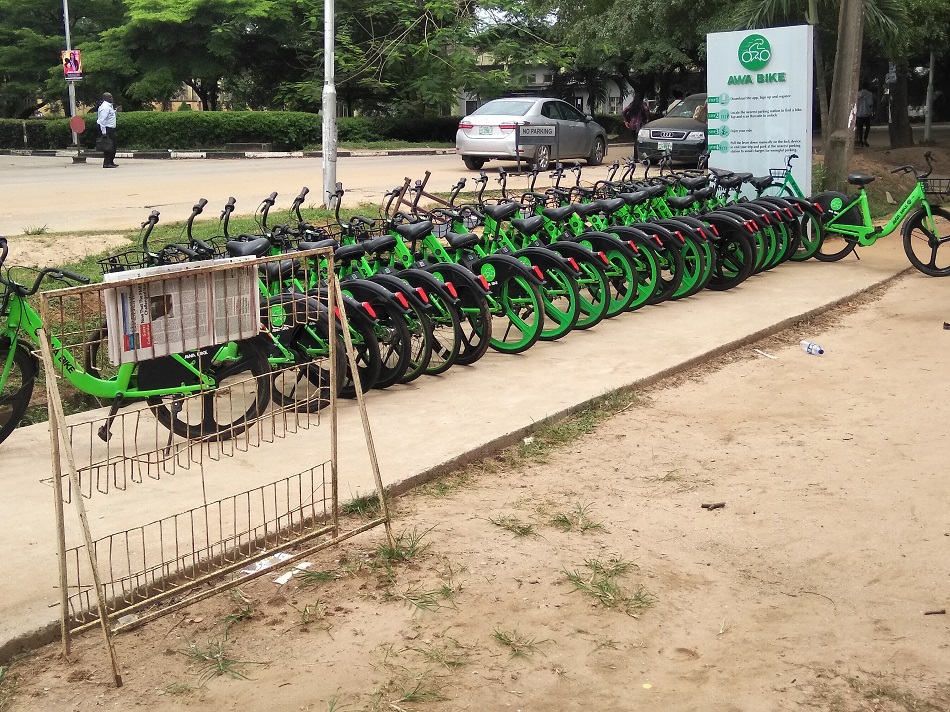

Whatever the case may be, so much running around always takes its toll and most students would rather not be bothered with such stress.
But smart bike sharing platform, Awa Bike is giving students of LASU a new lease of life. While it hasn’t taken away the need for movement, its bikes are giving students an easy and incredibly cheap means of commuting around campus.
As students told this reporter, the bikes have proved very useful for students.
“The bikes are very useful for students because, if you have a lecture by 10 and you’re in school by 9.40, before you walk down to the center you might end up late. But if you get the bike, it will be a lot faster,” Soma Kudus a PHE student says. “As a PHE student, when I get to this gate, to get to the sports centre is very far for me. So I just unlock a bike to get to the sports centre,” he says.
Another student, Bolaji, thinks Awa Bike is an amazing introduction into the campus.
“The bikes are very good and they really help to go for lecture very fast because you can’t go waiting for shuttle when you have your phone with which you can unlock the bike and make sure you get to your lecture,” he says. “When you get there, you can park the bike and lock it still with your phone.”
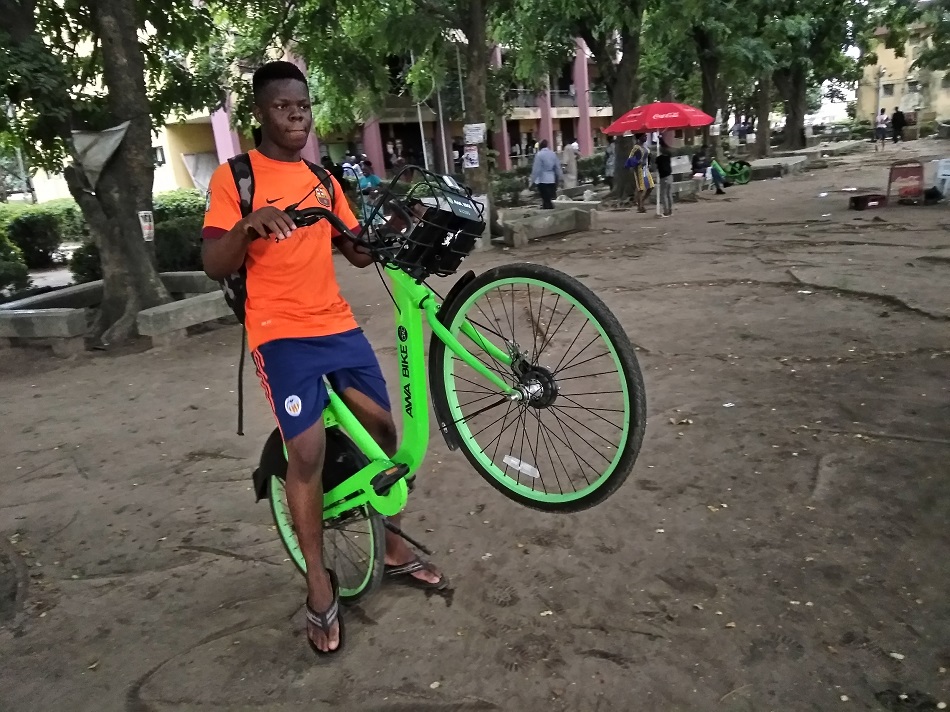

Sounds very seamless, doesn’t it? That’s probably because it really is.
How Awa Bike App Works
Awa Bike employs an android app for basic functionalities such as searching for available bikes, payment, unlocking bikes and locking them after use.
Every bike has an identification number which is basically its only form of identification written boldly at the front of their carriages.
First, the user has to download the Awa Bike app which has over 1,000 downloads on Google Play (because it is still in its development stage, might prove a bit difficult to download). Then they will have to register with full name, phone number, email etc.
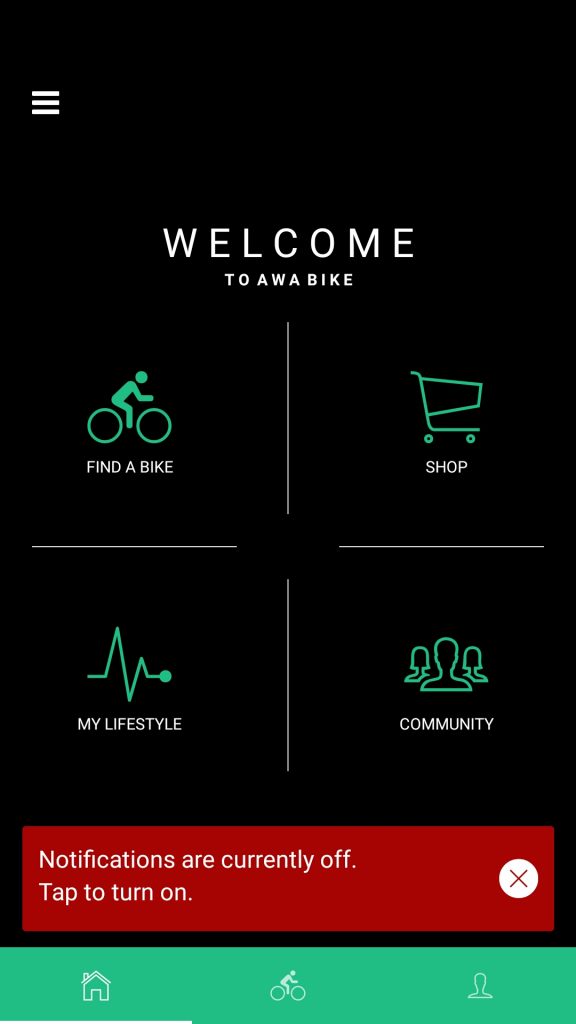

To find an available bike, simply click on ‘Find a Bike’. This takes you to a locations service which identifies all the available bikes around you through their unique numbers. You’d also see how far the nearest available bike is.
The students explained that the key is to simply locate a bike around you, search for its number on the Awa Bike app and simply book it.
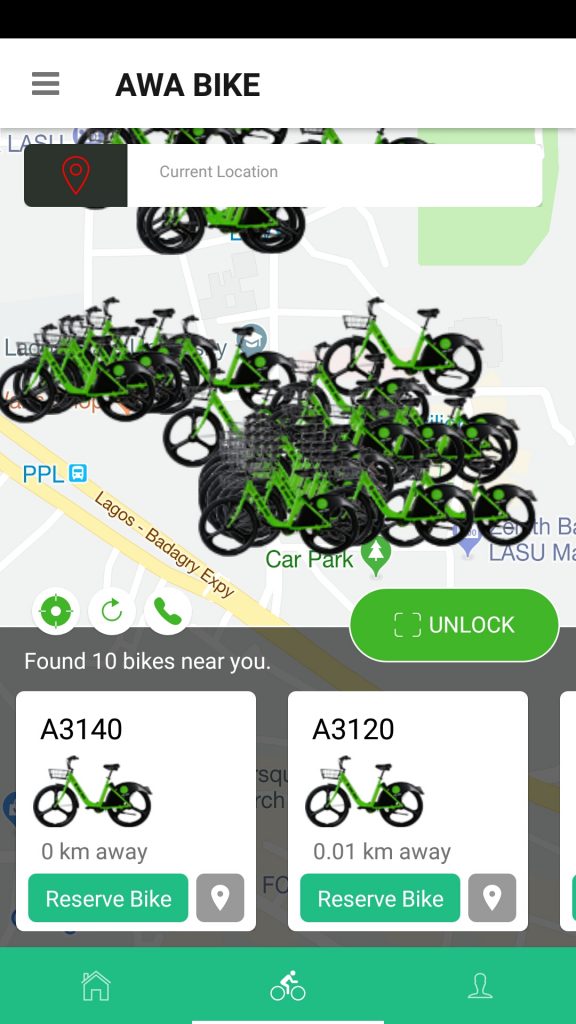

After booking, the Awa Bike app would provide a QR code with which to unlock the bikes already fitted with their own code readers.
The only means of payment is through an ATM card and while registering your card, you will be required to pay a validation fee of 100 Naira.
Pricing
The cost of using Awa Bike is unbelievably cheap, as testified to by both students and this reporter.
“We charge 20 Naira for 15 minutes which is 80 Naira for 1 hour,” an Awa Bike representative at LASU says. “We are supposed to charge for wrongful parking but you know how these students behave,” he says.
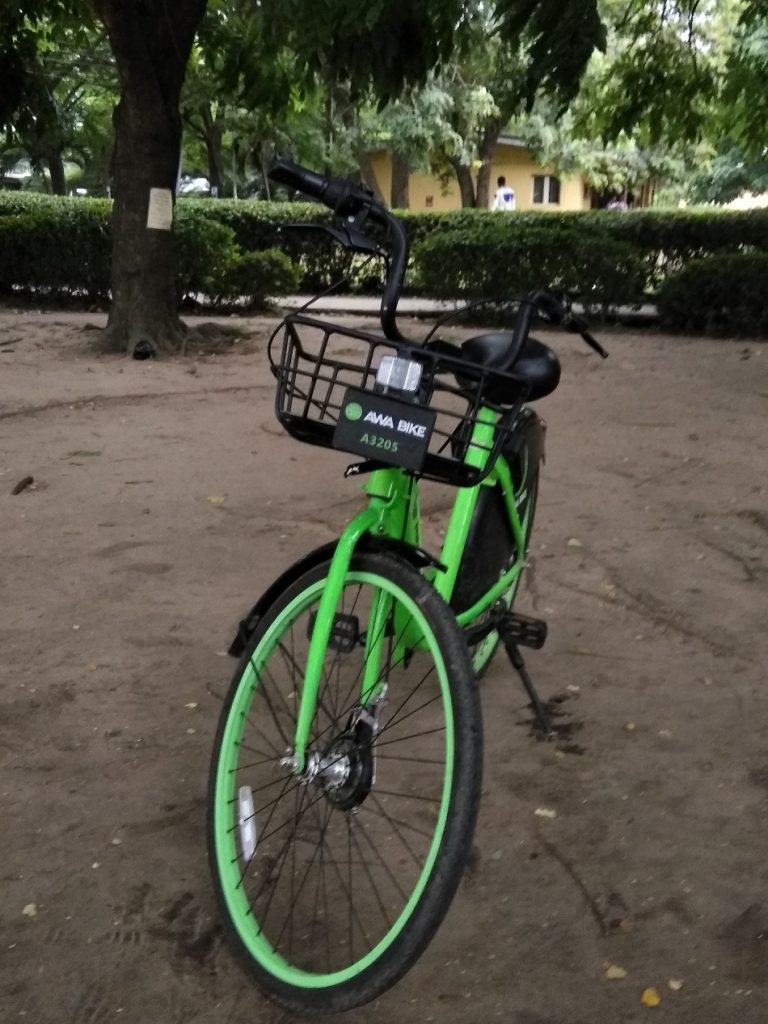

Moruf, a postgraduate student says the price is very okay. “You could ride 15 minutes for 20 Naira. I think it is okay for me.”
“The money they charge for the bike is very cheap,” Kudus says. “For a whole day, I’m not sure the cost is even up to 400 Naira. Very cheap.”
Operation and Challenges
Awa Bike representative at LASU, Innocent Onoja says on the average the service gets an estimated 140 unlocks per day.
“The thing is, one person can unlock like twice in a day,” Mr Onoja explains. “So we get about 140 unlocks.”
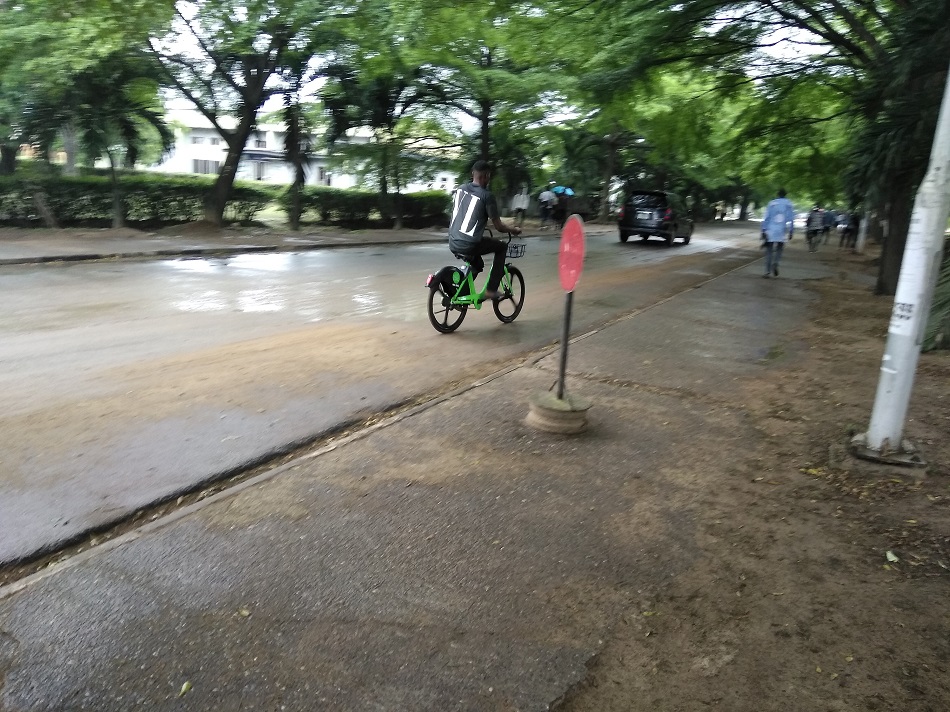

He also explains that there are about 8 Awa Bike parking zones on campus, the main one called the ‘signboard’ is the biggest park at the main gate where the bikes are ‘offloaded’. The other parks are situated at other public places like faculty buildings etc.
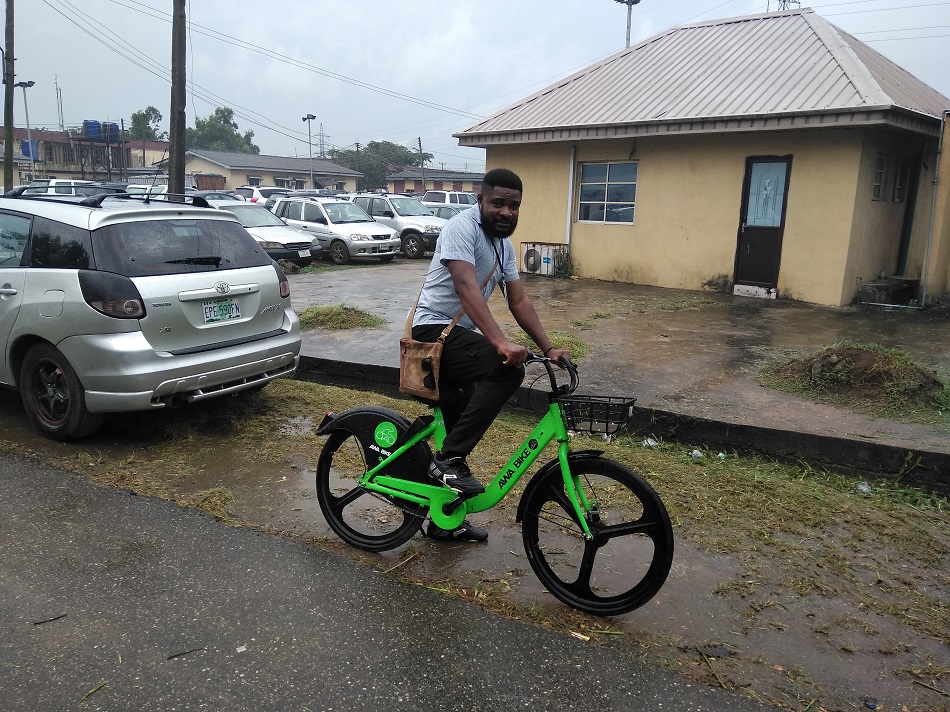

The bikes are strictly for use within the campus. But while nobody is allowed to take a bike outside, it doesn’t mean outsiders can’t come into campus to enjoy the service especially as a form of exercise and recreation in the evenings and during weekends.
“We discovered that on Saturdays outsider come and use the bikes for exercises,” the LASU representative says. “They only ask if they are allowed to ride and we tell them as long as they don’t take out of campus, why not. People also come at nights during weekdays and just have fun.”
Challenges
Being a new service, Awa Bike faces several challenges and Mr Onoja acknowledged as much, pointing out that the key challenges are with the technology.
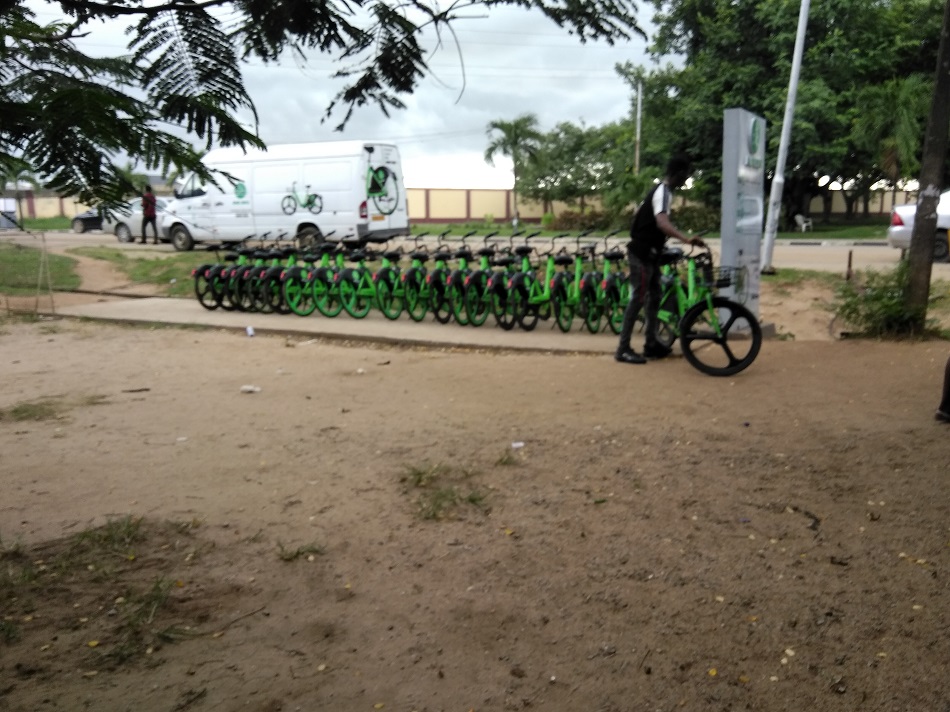

“You know, not everybody has a smartphone and people (who don’t have smartphones) ask if it is possible to unlock without a smartphone. Another issue is the ATM card. It takes time to convince people to input their card details into something like that. I tell them this is a standard company and they shouldn’t be afraid. Some will be convinced while others will still want to wait for their friend to try it out before they input theirs.”
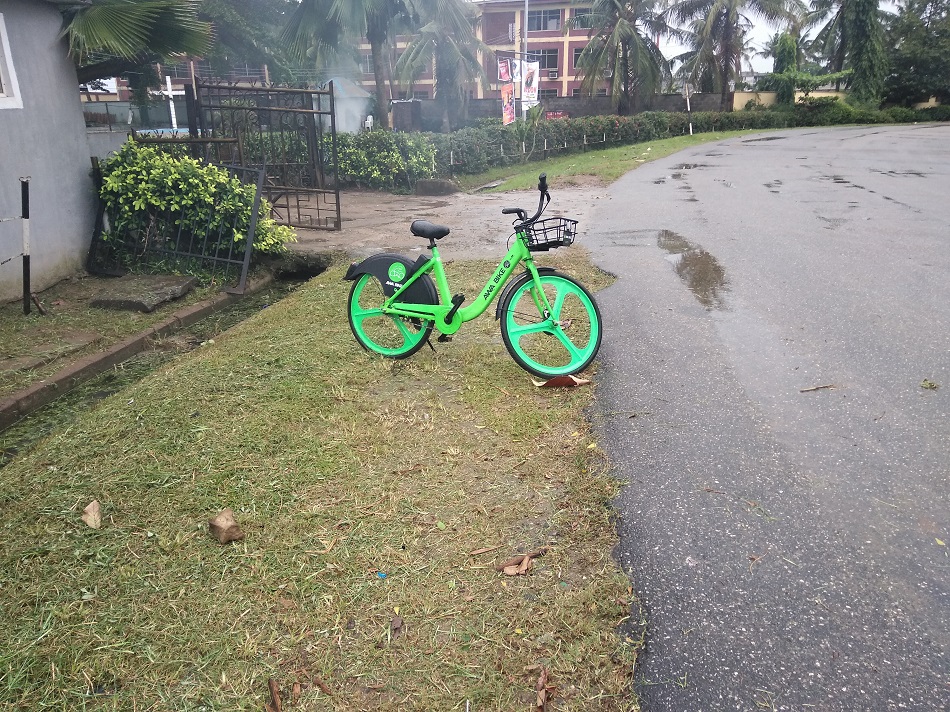

But the students we spoke with already understood these challenges and wish the platform could figure out a way to make bikes available for people who don’t have smartphones.
“I haven’t ridden the bike because I lost my smartphone a while ago,” Sunday says. “But when I see people riding it I’m impressed. If there is a way I can ride without a smartphone, why not?”
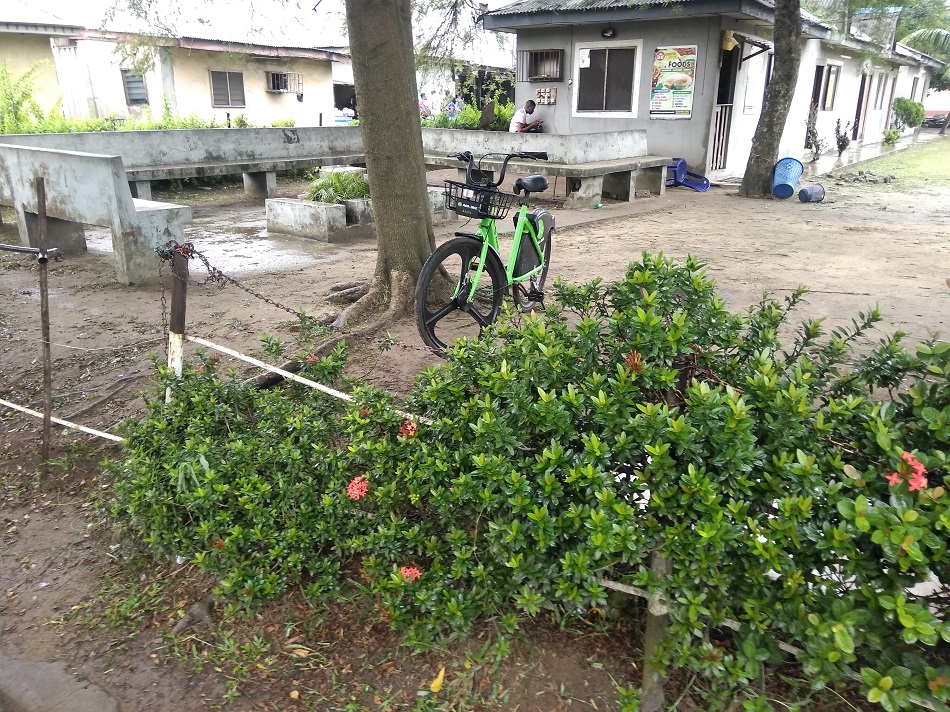

The rate of adoption is quite impressive as a good number of these bikes were seen in locations around the campus. To many of them, a bike is a cheaper and more convenient means of transportation because it is readily available and even takes you to places shuttles won’t go.
But like the LASU representative said, its technology is still its biggest challenge because many students just aren’t just ready to deal. We look forward to an expansion to other institutions.






